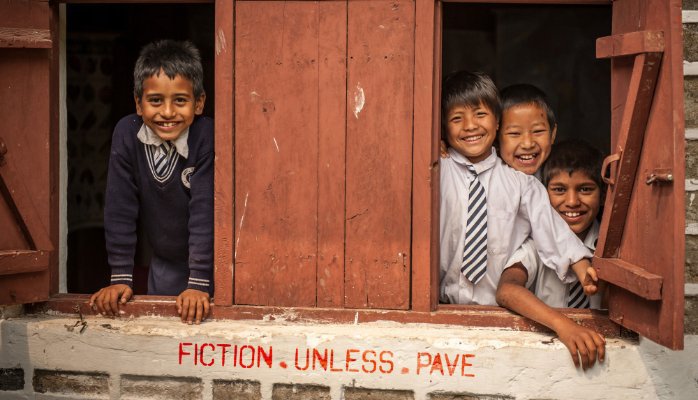Three words that can change the world

Hello, Habr!
We wanted to make our first material on this site just welcoming. There will still be a lot of information of various kinds, we will definitely tell you about the technical component of the project, but let me first explain what problems we solve.
What3words marketing director Jail Rhys Jones is the best to talk about. Like all members of the team, he often repeats the statement that there are no problems with maps in the world, but serious problems with addresses. On the pages of our blog you will come across this statement more than once. And so:
In the world there really are problems with addresses.
About 75% of the world's population suffers from ambiguous and confusing address systems, or from their complete absence.
These are 135 countries.
If during the past holidays Santa Claus used the same addresses that we use daily, 4 billion people would be left without gifts.

All this means that 11 million people in Brazil cannot provide their address, are not able to receive a bank card in the mail, and they are completely invisible to emergency services.
The problem concerns not only residential buildings. Without an international standard for designating specific locations, water sources may not be found. Addressing schools, refugee camps, and in slums can also be beneficial. All of these are one of the many reasons we started working on what3words.
What3words uses a unique three-word combination to designate a 3-meter by 3-meter square located anywhere in the world. Unlike many mapping services, w3w covers the entire globe with a grid of 57 trillion squares, which gives our system the opportunity to become the new standard for positioning.
Using words to indicate a location has certain advantages. You can find any point as accurately as possible, and most importantly, people can quickly share locations in communication, avoiding ambiguity. Using postal addresses, zip codes, latitude and longitude, or short links from mobile devices can often only confuse and take time.

Technically speaking, what3words is a tiny bit of code. An algorithm that allows all 57 trillion addresses to fit on any smartphone. The system works on different platforms and different languages.
Today, there are a huge number of navigation applications, and what3words can be integrated into each of them. The system is already used in car navigation, search services for travel companions and property, courier services, taxis, as well as for tourist routes.
Poor addressing systems impede the continued growth of developed countries, and literally pose a threat to life in developing countries.

We believe that the world would be better if people could exchange locations from any of its corners.
We are looking for partners and like-minded people who are ready to help achieve this goal. In subsequent publications, we will talk in more detail about our API for developers, about our research, about integration and development of the project.
We are open for communication and cooperation, because we want to introduce the whole world to our “three words”.
